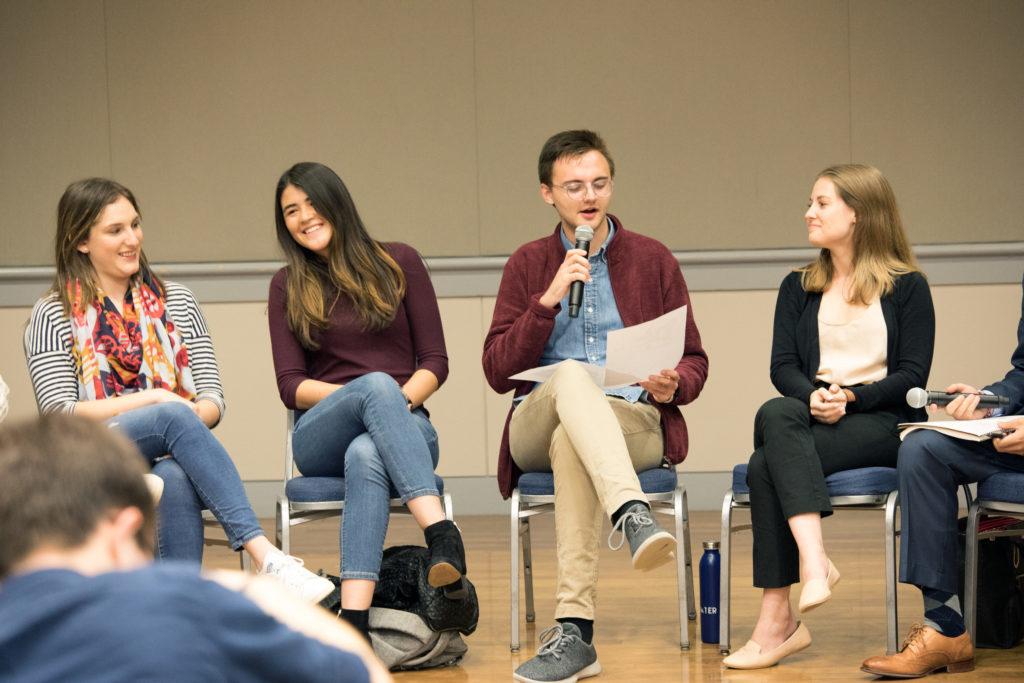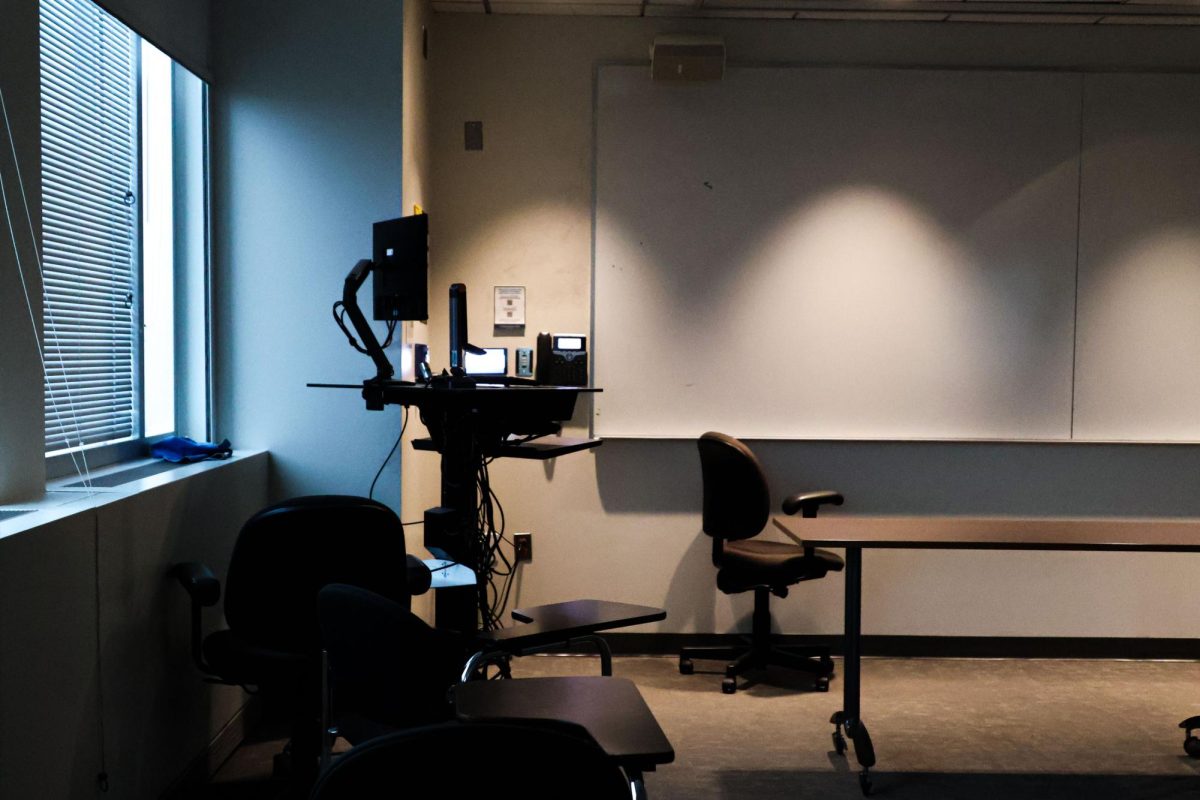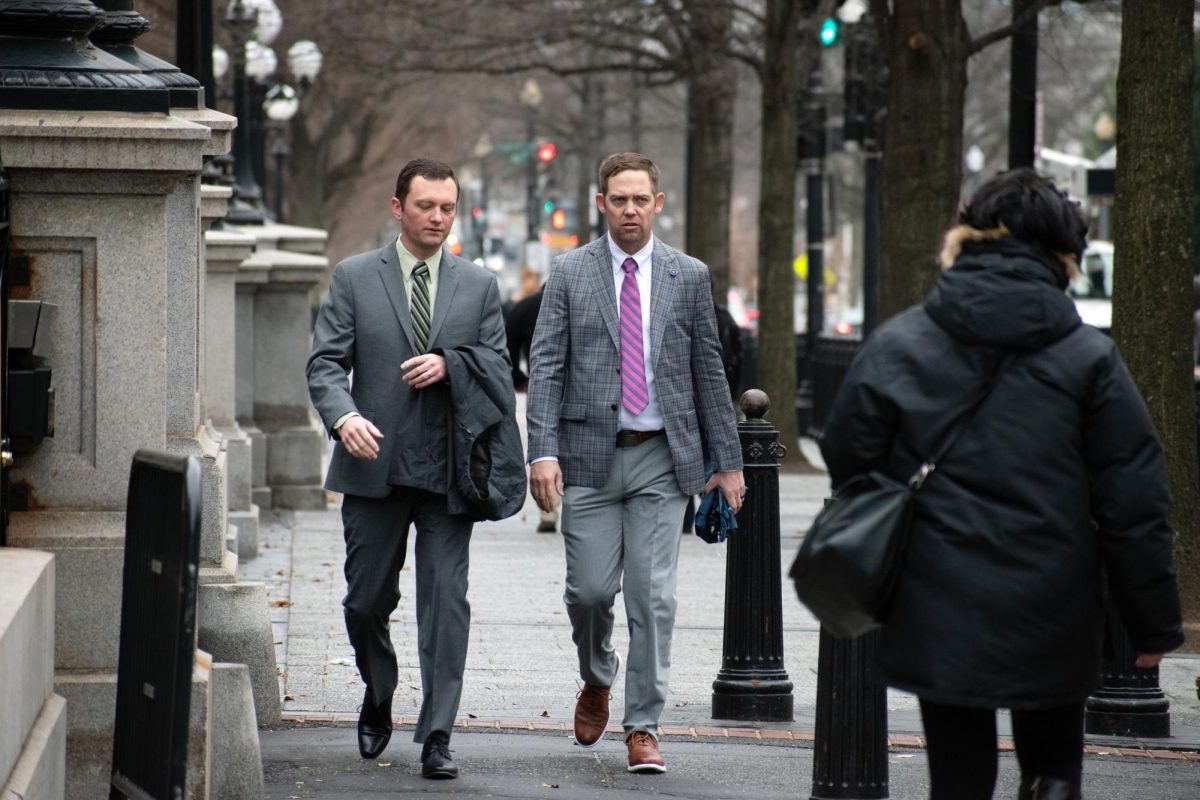For the first time in recent history, the leaders of the Student Association, Residence Hall Association, Class Council and Program Board held a joint town hall Wednesday to field questions and comments from the student body.
Twenty-four students attended the one-and-a-half-hour-long event in the Marvin Center Continental Ballroom, broaching subjects like University President Thomas LeBlanc’s priorities, how to advertise student events and how to be both a leader and a follower.
Reed Elman, the vice chair of Program Board, said students in leadership roles can often get caught up in their well-intended ambitions and forget what it’s like to connect directly with students – something he wants to address going forward.
“That’s something I’m passionate about working with these people on – to make sure our student body feels like they can talk to us on a very peer-to-peer level, not a microphone to microphone to audience level,” he said.
Here are three main takeaways from the event:
Collaboration with student organizations
SA Executive Vice President Sydney Nelson said the SA has been working with other student organizations to support their efforts and serve as advocates.
“Student organizations are doing amazing things like forming councils and coalitions, having advocacy efforts and community-building efforts,” she said. “So we’re really looking at how we can support them, and making sure students know that we’re a resource and can support them further in their efforts.”
Brooke Schwartz, the president of Class Council, said the organization is trying to collaborate with new student groups this academic year to increase interaction among different student communities.
“Some of the ways we’re trying to do this is by reaching out to groups who may need help in terms of advertising their events and promoting their events, and helping them out in any way possible,” she said.
Engaging with the student body
Freshman Jules Jacobs asked the student leaders how they can better alert the student body of student-run activities and increase turnout at events like the town hall.
“It seems like you’re all doing these amazing things that are great ideas, but I think maybe sometimes the delivery is off,” Jacobs said.
[gwh_image id=”1040824″ credit=”Jace Knie | Hatchet Photographer” align=”none” size=”embedded-img”]Freshman Jules Jacobs asked the four leadership organizations how they can better advertise events to the student body during the town hall.[/gwh_image]Elman said he’s spoken with SA leaders about better coordinating calendars and event schedules among student organizations and attempting not to schedule events during busy weeks.
“An ongoing challenge that all of us up here have – and all student organizations and even administration at this school has – is scheduling,” he said. “I think it’s fair to say that most GW students at any hour of the day have about three options for what they want to do at that time.”
RHA President Rachel Metz said her organization relies heavily on student feedback to make change, and that RHA leaders are seeking student feedback about the Vern Express this academic year to make improvements.
Promoting transparency
SA Sen. Devan Cole, CCAS-U, asked SA leadership during the town hall how they’ve aimed to be transparent this academic year and if those efforts have been successful.
SA President Peak Sen Chua said the SA has tried to create a transparent environment by appointing senators to serve in important roles across the University, like on Board of Trustees task forces, and encouraging senators and cabinet members to work together.
Nelson said the SA’s updated website, which makes senate bills, resolutions, agendas and meeting minutes publicly available, is one major way the organization has made its work more transparent. She said the SA is also working on adding projects and initiatives to the site.
“Our goal is always to make sure students feel as engaged as possible in what the senate is doing from an EVP standpoint,” she said.





